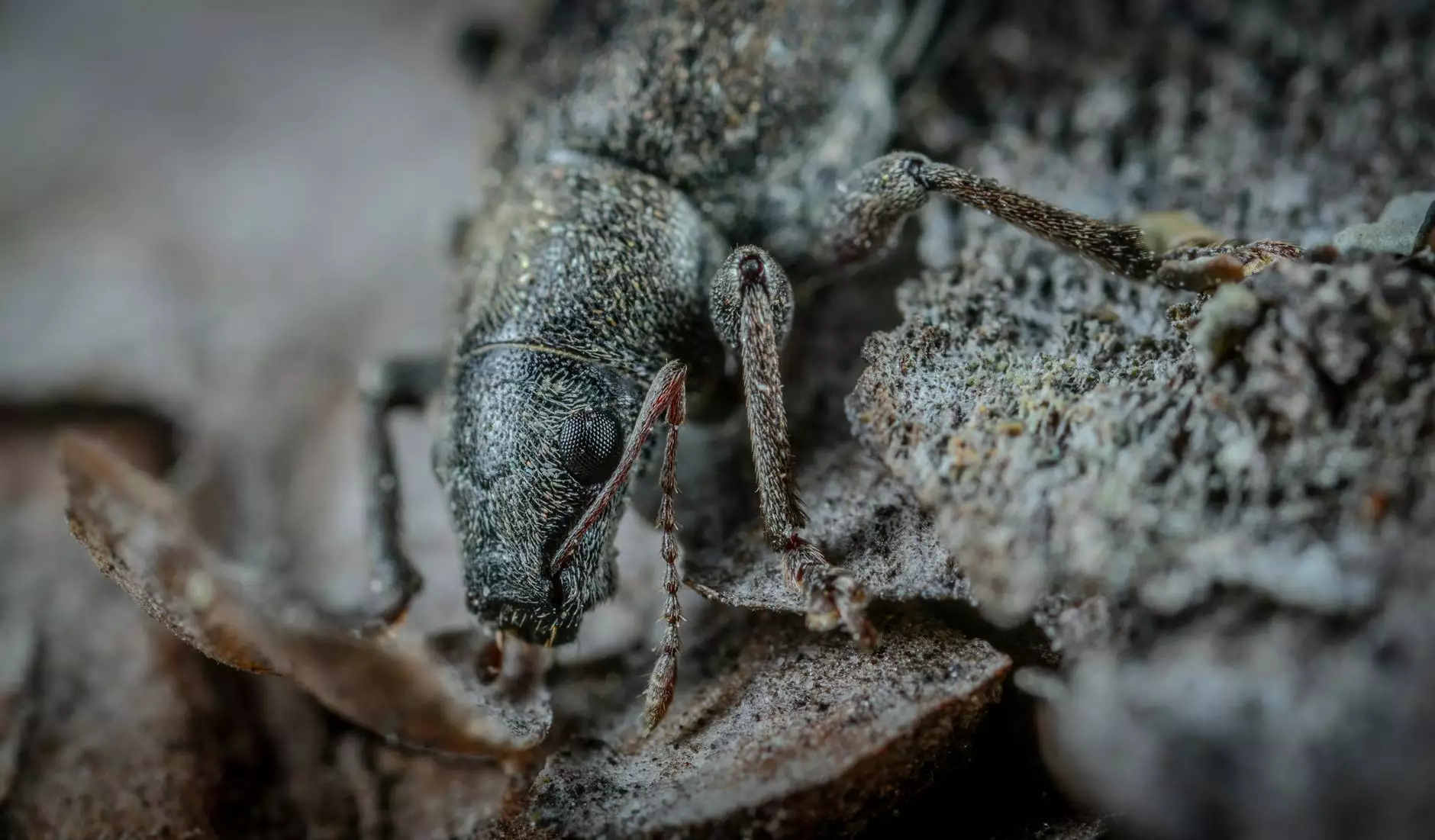Effective Maize Weevil Control for Optimal Harvests

The maize weevil, scientifically known as Sitophilus zeamais, poses a significant threat to corn crops, leading to potential losses for farmers. Understanding maize weevil control is crucial for safeguarding your harvest and enhancing your overall yield. In this comprehensive article, we will explore the methods, tips, and best practices to implement effective maize weevil management. As you embark on this journey to protect your farming investment, remember that comprehensive knowledge and proactive measures are your best allies.
Understanding the Maize Weevil: An Overview
The maize weevil is a small beetle that primarily infests stored maize grains. Recognizable by its elongated shape and a distinctive snout, it can cause extensive damage through its feeding habits. Adult weevils are capable of laying hundreds of eggs in individual grains, further complicating pest control efforts. Moreover, the larvae that hatch from these eggs continue to consume the grain, leading to significant losses in storage facilities and fields.
Identifying the Signs of a Maize Weevil Infestation
To effectively tackle maize weevil infestations, it is essential to be able to recognize the signs early on. This can help in implementing maize weevil control measures before the problem escalates. Here are some indicators of an infestation:
- Holes in Grain: Small holes on the surface of the grains indicate weevil feeding.
- Frass: The presence of tiny grain dust or frass near your grain storage can signal weevil activity.
- Dead Weevils: Finding dead weevils in your grain may suggest a larger population is present.
- Unusual Odors: A musty smell around stored grains can indicate an infestation.
Integrated Pest Management for Effective Control
Integrated Pest Management (IPM) is a sustainable approach to controlling maize weevils while minimizing risks to the environment and human health. Implementing IPM involves a combination of strategies tailored to your farming operation.
1. Cultural Control
Cultural practices play a significant role in maize weevil control. These practices include:
- Crop Rotation: Alternating corn with other crops can disrupt the life cycle of maize weevils.
- Proper Storage Techniques: Use airtight containers for storing grains to prevent infestations.
- Regular Monitoring: Frequent checks of stored grain can help catch infestations early.
2. Biological Control
Utilizing natural predators can effectively suppress maize weevil populations. Some beneficial organisms include:
- Nematodes: These microscopic roundworms can infect and kill weevil larvae.
- Parasitoids: Certain wasps can lay their eggs inside weevil larvae, leading to their demise.
3. Physical Control Methods
Physical control involves using mechanical and physical barriers to prevent infestations:
- Heat Treatment: Subjecting grains to high temperatures can kill weevils and their eggs.
- Freezing: Storing grain at freezing temperatures for a specific period can effectively eradicate weevils.
Chemical Control: What to Consider
While cultural, biological, and physical controls are effective, sometimes chemical control methods are necessary, particularly for severe infestations. Before considering any pesticides, you should:
- Identify the Weevil: Confirm that you are dealing with maize weevils and not another pest.
- Consult Experts: Speak with agricultural extension professionals for appropriate recommendations.
- Follow Instructions: Always adhere to the product label for safe and effective use of pesticides.
Best Practices for Maize Weevil Control in Storage
Effective storage management is vital in controlling maize weevils. Here are some best practices:
- Clean Storage Areas: Regularly clean grain storage facilities to eliminate residues that can harbor pests.
- Inspect Incoming Grains: Check for signs of weevils in grains before storing them.
- Implement an Integrated Monitoring System: Install traps and regularly monitor for weevil activity.
The Role of Technology in Maize Weevil Control
Modern technology has introduced innovative solutions to help with maize weevil control. Advances in pest management technology include:
- Automated Traps: Smart traps that detect and capture weevils can provide real-time data to farmers.
- Pheromone Lures: These traps utilize pheromones to attract and capture male weevils, disrupting their mating.
- Mobile Apps: Various applications provide timely pest alerts, control methods, and monitoring tools based on user data.
Case Studies on Successful Maize Weevil Control
Looking at real-life examples can provide valuable insights:
Case Study 1: Community Cooperatives
A cooperative in southern Africa implemented a strict grain hygiene program, including regular inspections and clean storage practices, resulting in a 60% reduction in maize weevil populations.
Case Study 2: Integrated Approaches
A farm in North America adopted an integrated approach combining biological and chemical control strategies. By utilizing beneficial nematodes and targeted pesticide applications, they managed to keep weevil populations below damaging levels.
Conclusion: The Path Forward in Maize Weevil Control
Effective maize weevil control is vital for farmers aiming to protect their investments and maximize yield. By implementing a combination of cultural, biological, physical, and, when necessary, chemical control strategies, farmers can manage weevil populations effectively. By staying informed using the latest technology and strategies, you can improve your farming practices significantly. Remember, proactive measures combined with continuous learning and adaptation are key to successful pest management. Armed with the right knowledge, your fields can thrive even in the face of potential threats from maize weevils.
Resources for Further Information
To further enhance your understanding and practices related to maize weevil control, consider the following resources:
- Cooperative Extension System
- Pest Control Guidelines
- Food Safety Initiatives
For additional assistance, do not hesitate to reach out to experts in your area, including those from TSGC Inc., who specialize in farm equipment repair and farming equipment. They can provide tailored advice and support to help you implement effective pest management strategies. Protect your maize crops and ensure a bountiful harvest this season by taking control through knowledge and action.









